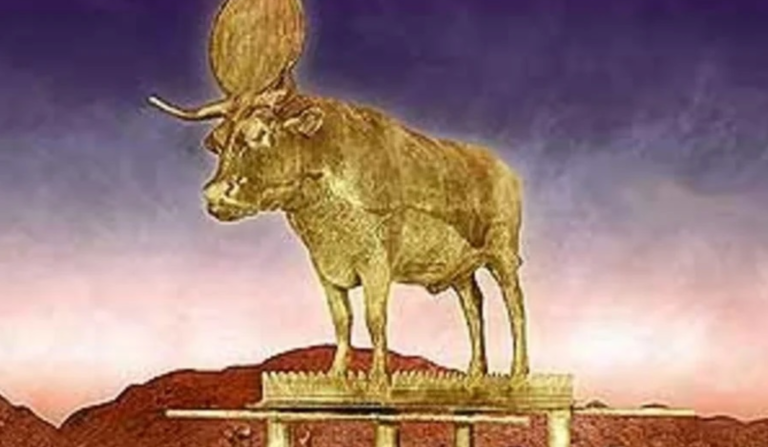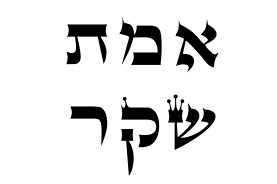Lot and the Valley of Weeping

How a Secret Message in Lecha Dodi Can Transform Your Life:
Have you ever felt like your life was a complete mess, that everything you relied upon to create stability and order in your world had been turned completely upside down, overturned in some type of cataclysmic upheaval? You know what we're talking about, chas v'shalom, things such as loss of parnasah, foreclosure, eviction, arrest, divorce, estrangement from family, serious illness or unexpected death of a loved one. The first thing to realize, even though it may be difficult to accept in the heat of the moment, is that you're not alone. Hashem is with you. The second thing to realize, and this may be even more difficult to feel, is that whatever you are experiencing has been orchestrated by Hashem for your utmost good. Let's try to explain.
It is written (Bereshit 19:29): וַיְהִי בְּשַׁחֵת אֱלֹקִים אֶת־עָרֵי הַכִּכָּר וַיִּזְכֹּר אֱלֹקִים אֶת־אַבְרָהָם וַיְשַׁלַּח אֶת־לוֹט מִתּוֹךְ הַהֲפֵכָה בַּהֲפֹךְ אֶת־הֶעָרִים אֲשֶׁר־יָשַׁב בָּהֵן לוֹט (And when G d destroyed the cities of the plain, G d remembered Avraham, and He sent Lot out from the midst of the upheaval, in the overturning of the cities in which Lot dwelt). Think about that for a moment. Yes, we have difficulties, but most of us haven't quite gone through what Lot went through. He went from being one of the most important and respected men of S'dom to being dragged out of the city (practically against his will) together with his wife and two daughters only to witness the complete destruction not only of his home but of the entire city (along with the rest of the cities of the plain). Seriously, I don't think any of us can even begin to imagine what that was like. And if that wasn't bad enough, his wife turned into a pillar of salt in front of his eyes! Finally, he ended up taking refuge in a cave – more than likely while in a complete state of shock – and drank himself into a drunken stupor. He had become such a wreck that not only did he have relations with his older daughter that first night without even being aware of it at the time, but he willingly repeated getting drunk the second night so that he could repeat his perversity, but this time with his younger daughter, even though he had learned in the morning what had happened the night before with his older daughter (Rashi to Bereshit 19:33). So even though G d sent him out 'from the midst of the upheaval', he never really left the upheaval.
Every Leil Shabbat, we sing the famous song Lecha Dodi, composed some time in the 16th century C.E. by the famous mekubal R' Shlomo ha-Levi Alkabetz. The third stanza says the following: מִקְדַּשׁ מֶלֶךְ עִיר מְלוּכָה. קוּמִי צְאִי מִתּוֹךְ הַהֲפֵכָה. רַב לָךְ שֶׁבֶת בְּעֵמֶק הַבָּכָא. וְהוּא יַחְמוֹל עָלַיִךְ חֶמְלָה (Sanctuary of the King, royal city, get up, leave the midst of the upheaval, long have you sat in the Valley of Weeping, He will show you abundant pity). Although these words are rich in kabbalistic imaginary, here we just want to focus on their simple meaning. The Shechinah is being told to leave her exile once and for all and to return to the Beit ha-Mikdash in the holy city of Yerushalayim. But since the Shechinah is also identified as Knesset Yisrael, there's another meaning here. We too are being told to get up from our weekly exile, to leave the upheaval in our lives, and to find rest in the kedushah and taharah of Shabbat. The message should be clear. Just as G d sent malachim to lead Lot out of the midst of the upheaval, we too are we being sent malachim to lead us out of the midst of our weekly upheaval. Instead of convincing the malachim to take us to a dark, lonely cave so that we can drink ourselves into a self-intoxicating stupor, we are being told to follow their lead to bring us under the chuppah of Ha-Kadosh, baruch Hu, and His Shechinah. It's our choice, even as it was Lot's choice.
But what is meant by the words 'long have you sat in the Valley of Weeping'? What is this Valley of Weeping [עֵמֶק הַבָּכָא, Emek ha-Bacha] to which R' Alkabetz is referring?
He is making a direct reference to Tehillim 84:7: עֹבְרֵי בְּעֵמֶק הַבָּכָא מַעְיָן יְשִׁיתוּהוּ גַּם־בְּרָכוֹת יַעְטֶה מוֹרֶה (Those who pass through the Valley of Weeping [Emek ha-Bacha], they turn it into a freshwater spring [maayan]; also, the early rain [alternative: 'teacher' or 'Teacher'] envelops it with blessings). R' Yehoshua ben Levi explains in Eruvin 19a that (1) 'those who pass through' [עֹבְרֵי] the valley are בְּנֵי אָדָם שֶׁעוֹבְרִין עַל רְצוֹנוֹ שֶׁל הַקָּדוֹשׁ בָּרוּךְ הוּא (people who transgress the will of Ha-Kadosh, baruch Hu), (2) the 'valley' itself [עֵמֶק] indicates that שֶׁמַּעֲמִיקִין לָהֶם גֵּיהִנָּם [Gehinnom is deepened for them), and that (3) 'the weeping' [הַבָּכָא] means שֶׁבּוֹכִין וּמוֹרִידִין דְּמָעוֹת כְּמַעְיָין שֶׁל שִׁיתִין (that they weep and shed tears like a maayan [that reaches down to] the foundations [of the earth]). Based on this teaching, Rashi explains that 'those who pass through the Valley of Weeping' are אותם העוברים על דתך והנם בעומקה של גיהנם בבכי ויללה (those who transgress Your law, and behold, they are in the depth of Gehinnom with weeping and wailing). He then explains that 'they turn it into a maayan' בדמעות עיניהם (with the tears of their eyes).
What are they crying about? They are not crying because of the punishment itself, i.e. the cleansing and the tikkun, that they are receiving in Gehinnom. For that they are grateful. Rather, they are crying because they messed up and transgressed the will of Hashem and that they made themselves distant from Him and from His kedushah. This is evident from the words of R' Yehoshua in the Gemara when explaining the latter part of the pasuk: שֶׁמַּצְדִּיקִין עֲלֵיהֶם אֶת הַדִּין וְאוֹמְרִים לְפָנָיו: רִבּוֹנוֹ שֶׁל עוֹלָם יָפֶה דַּנְתָּ יָפֶה זִכֵּיתָ יָפֶה חִיַּיבְתָּ וְיָפֶה תִּקַּנְתָּ גֵּיהִנָּם לָרְשָׁעִים גַּן עֵדֶן לַצַּדִּיקִים (They justify the verdict against them and say before Him, 'Master of the World, You have judged properly, You have acquitted [the innocent] properly, You have convicted [the guilty] properly, You have established Gehinnom for the wicked, Gan Eden for the righteous'). This is also the way Rashi understands the latter part of the pasuk, even adding that they thank Hashem for His righteous judgments: מברכים ומודים לשמו ואומרים יפה דן אותנו ואמת דינו (They bless and give thanks to His name and say, 'He judged us properly and His judgment is true'). The same idea is expressed in Midrash Shemot Rabbah 7: מַהוּ מַעְיָן יְשִׁיתוּהוּ? שֶׁמּוֹרִידִין דְּמָעוֹת כְּמַעֲיָינוֹת עַד שֶׁמְצַנְּנִין אֶת גֵּיהִנֹּם בְּדִמְעוֹתֵיהֶן (What is [the meaning of] 'they turn it into a maayan'? They shed tears like springs until they cool off Gehinnom with their tears).
But why wait for Gehinnom in the next world? After all, many people think that this world is Gehinnom already. If so, what should be our response now to the times when we are passing through the Emek ha-Bacha as a result of our own transgressions? Shouldn't we do teshuvah and thank Hashem even now as the Gehinnom of this world is deepened for us? How can we acknowledge the truth about those Jewish sinners who enter Gehinnom in the next world, that they are doing the right thing by thanking and praising Hashem for His justice, yet somehow, not stop to thank Him now for His justice? Does that really make sense?
Three times each day we recite the famous pasuk from Tehillim 84:5: אַשְׁרֵי יוֹשְׁבֵי בֵיתֶךָ עוֹד יְהַלְלוּךָ סֶּלָה (Praiseworthy are those who dwell [alternatively: 'sit'] in Your house; continually they will praise You, Selah). The next couple pesukim are much less familiar to us, however. The next one says: אַשְׁרֵי אָדָם עוֹז־לוֹ בָךְ מְסִלּוֹת בִּלְבָבָם (Praiseworthy is the man whose strength is in You; [Your] paths are in their hearts). And the very next pasuk – continuing the theme of these two preceding ones – is our pasuk, the one that we have been explaining all along! Do you see what David ha-Melech is saying?
The reason the people in v.7 are able to shed tears of longing, tears of teshuvah, tears of truth even as their world is overturned into a living Gehinnom for them, even as they seem to be living 'in the midst of an upheaval', is davka because they are continually praising Him while dwelling in His house (v.5) and gaining the strength needed to put His paths into their heart (v.6). That commitment and strength is what enables them to 'get up [and] leave the midst of the upheaval', and to cry the right kind of tears – not the whiny tears of self-pity, but the impassioned tears of yearning and deveikut – and to thank Hashem even when Gehinnom is made deeper for us in this world. Yes, it's difficult. But what choice do we have? Do we really want to wait until we enter Gehinnom in the next world, chas v'shalom? The good news is that we don't have to wait. We can do it now and spare ourselves a difficult future.
If you take the time to read through all of Tehillim 84 you will see that the whole mizmor deals with spending time in the House of Hashem. This is brought out in Likutei Halachot (Orach Chaim, Tefillat ha-Minchah 7:67): וְכֵן כָּל הַמִּזְמוֹר מְדַבֵּר שָׁם מִזֶּה מִמַּעֲלוֹת הַבָּתֵּי מִדְרָשׁוֹת שֶׁל יִשְׂרָאֵל שֶׁהֵם בְּחִינַת מִשְׁכָּן וּבֵית-הַמִּקְדָּשׁ (The entire mizmor is speaking there about the elevated greatness of the Batei Midrashot of the Jews, that they are an aspect of the Mishkan and the Beit ha-Mikdash). What is it about them that makes them so great? R' Natan answers this question by connecting it with what we have learned already: שֶׁעַל-יְדֵי קְדֻשַּׁת הַבֵּית הַמִּדְרָשׁ הַזֶּה גַּם אֵלּוּ שֶׁהֵם עֹבְרֵי בְּעֵמֶק הַבָּכָא שֶׁנָּפְלוּ לְעֵמֶק הַבָּכָא שֶׁהָיוּ נוֹפְלִים בְּעֹמֶק הַגֵּיהִנֹּם וְהַשְּׁאוֹל תַּחְתִּיּוֹת עַל-יְדֵי מַעֲשֵׂיהֶם הָרָעִים גַּם הֵם מַעְיָן יְשִׁיתוּהוּ שֶׁיִּמְצְאוּ מַעְיָן הַיּוֹצֵא מִבֵּית השם (Through the kedushah of this Beit Midrash, also these 'who pass through the Valley of Weeping', who fell to the Valley of Weeping, that they fell in the depth of Gehinnom and the lowest levels of hell through their evil deeds, even they can 'turn it into a maayan', that they should find the maayan that emerges from the House of Hashem). In other words, we can all find a way out of our living Gehinnom, even if we have descended to the most terrible places. There is no reason to become discouraged, depressed or filled with despair. There is always a way up, as we learn from David ha-Melech elsewhere (Tehillim 139:8): אִם־אֶסַּק שָׁמַיִם שָׁם אָתָּה וְאַצִּיעָה שְּׁאוֹל הִנֶּךָּ (If I ascend to heaven, You are there; and [even] if I make my bed in hell [Sheol], behold, You are there).
Now what is this maayan that emerges from the House of Hashem? First of all, know that R' Natan is referring to Yoel 4:18 which says: וּמַעְיָן מִבֵּית יְיָ יֵצֵא וְהִשְׁקָה אֶת־נַחַל הַשִּׁטִּים (And a maayan goes out from the House of Hashem, and it irrigates the [dry] riverbed of Shittim). What is the meaning of the maayan that irrigates the dry riverbed of Shittim? On the Midrashic level, Rashi says that יכפר על עון פעור (it atones for the sin of [Ba'al] Pe'or). What is that sin? It is the sin described throughout Bamidar 25 in which the men of Yisrael ran after their lusts and participated in the avodah zarah of the Ba'al Pe'or idol in order to commit sexual fornication with the Midianite women. But what does that have to do with our topic?
The fact of the matter is that the lust for ni'uf is the most powerful lust in the world (and tragically, it is so even among us). And as a result, it is also the root cause for most of the depression in the world. As it says in Likutei Halachot (Tefillat ha-Minchah 7:67): שֶׁהוּא רִבּוּי תַּאֲווֹת נִאוּף שֶׁחָטְאוּ בַּשִּׁטִּים שֶׁזֶּה עִקַּר הַהִתְגַּבְּרוּת עַל כָּל אֶחָד כְּמוֹ שֶׁאִיתָא בַּזֹּהַר הַקָּדוֹשׁ עִקָּרָא דְּיִצְרָא בִּישָׁא וְכוּ'. אֲבָל יֵשׁ מַעְיָן הַיּוֹצֵא מִבֵּית ה' שֶׁהוּא הַבֵּית-הַמִּקְדָּשׁ שֶׁהוּא בְּחִינַת הַבֵּית הַמִּדְרָשׁ הַנִּזְכָּר לְעֵיל שֶׁמְּטַהֵר וּמְכַפֵּר עֲבוֹדָה זָרָה (The multiplicity of the lusts of ni'uf in which they sinned in Shittim is the essence of what must be overcome by each individual, like it is brought down in the Zohar ha-Kadosh [Vayikra 15b], 'the essence of the Yetzer Ra, etc.' – however, there is a maayan that emerges from the House of Hashem, which is the Beit ha-Mikdash, which is the Beit ha-Midrash mentioned above, that purifies and atones for avodah zarah).
Much more could (and should) be said about this, but we'll end here with one final thought, a teaching from the Yeshiva of R' Yishmael (Kiddushin 30b): בְּנִי אִם פָּגַע בְּךָ מְנֻוּוֹל זֶה מׇשְׁכֵהוּ לְבֵית הַמִּדְרָשׁ. אִם אֶבֶן הוּא נִימּוֹחַ וְאִם בַּרְזֶל הוּא מִתְפּוֹצֵץ שֶׁנֶּאֱמַר: ״הֲלוֹא כֹה דְבָרִי כָּאֵשׁ נְאֻם ה׳ וּכְפַטִּישׁ יְפֹצֵץ סָלַע״. אִם אֶבֶן הוּא נִימּוֹחַ שֶׁנֶּאֱמַר: ״הוֹי כׇּל צָמֵא לְכוּ לַמַּיִם״ וְאוֹמֵר: ״אֲבָנִים שָׁחֲקוּ מַיִם״ (My son, if this disgusting one meets you, drag it into the Beit Midrash. If it's a stone, it'll dissolve and if it's iron, it'll shatter. As it says [Yirmeyahu 23:29]: "Isn't My word like the fire, says Hashem, and like a hammer that shatters a rock?" If it's a stone, it'll dissolve, as it says [Yeshayahu 55:1]: "Hoy! All those who are thirsty, go to the water!" And it says [Iyov14:19]: "Water wears away stones").
To the degree that we devote ourselves to learning Torah with dedication and self-sacrifice, to that degree we will come out from the midst of the upheaval.






